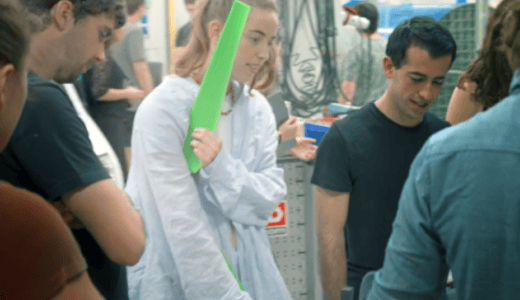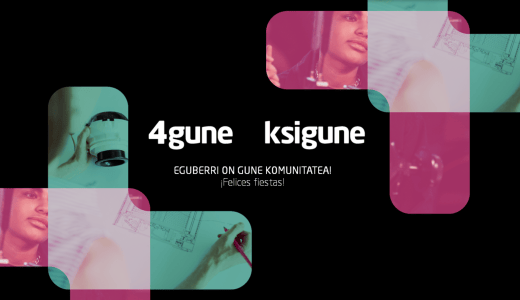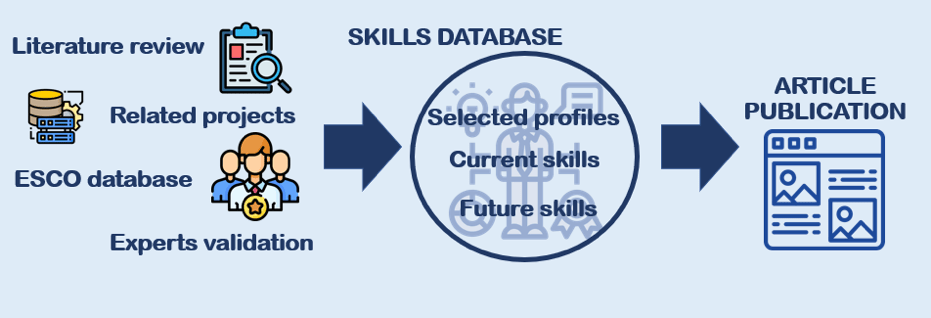The scientific journal Recycling has published the mentioned article, authored by the student Patricia del Val, along with the researchers Tugce Akyazi, Aitor Oyarbide and Aitor Goti.
"Identifying Future Skill Requirements of the Job Profiles for a Sustainable European Manufacturing Industry 4.0" [1], a project that has been carried out by the Faculty of Engineering of the University of Deusto, has recently achieved the validation of its results through being published as an article in a high impact scientific journal.
The scientific journal Recycling, ranked in the second quartile Q2 by the SCImago Journal & Country Rank (SJR) in the following 3 categories: a) Waste Management and disposal, b) Management Monitoring, Policy and Law, eta c) Material Science, has published the mentioned article, authored by the student Patricia del Val, along with the researchers Tugce Akyazi, Aitor Oyarbide and Aitor Goti. This journal has main scope articles, critical reviews and research notes in areas such as waste reuse and resource recycling, including current issues such as circular economy.
The developed project seeks to ensure that professionals in the industrial sector, specifically in the manufacturing sector, have the necessary competencies and skills to adapt to the needs of the future. The exponential growth of digitalization and increasing sustainability needs are reshaping the European manufacturing industry throughout its entire value chain. For this reason, it is imperative that future professional profiles are multidisciplinary profiles. It is also essential to identify future needs effectively in order to obtain a competent workforce that fills the current skills gaps. To this end, an inter-sectoral database has been developed to address the future competencies required for different manufacturing industry job profiles. In particular, these selected occupations are the transversal profiles that are directly related to industrial symbiosis and energy efficiency.
The developed database incorporates not only the current essential and optional competences, but also the future ones, as mentioned above. These future competencies were defined through a detailed desktop research. We believe that the database will be of great help to companies, educational and training institutions and policy makers to develop both future training programs and strategic roadmaps that can bridge the gap between the emerging and current professional needs.
Figure 1. The Project outline.
Finally, it should be noted that this project was carried out in collaboration with the ESSA project "Blueprint for New Skills Agenda Steel: Industry-driven sustainable European Steel Skills Agenda and Strategy" together with the SPIRE-SAIS project "Skills Alliance for Industrial Symbiosis - a Cross-sectoral Blueprint for a Sustainable Process Industry". It is also part of the collaboration programme between Euskampus - the 4GUNE Cluster - and Siemens-Gamesa Renewable Energy.
[1] Akyazi, T.; del Val, P.; Goti, A.; Oyarbide, A. Identifying Future Skill Requirements of the Job Profiles for a Sustainable European Manufacturing Industry 4.0. Recycling 2022, 7, 32. https://doi.org/10.3390/recycling7030032
News related news
-

Erik Garayalde: "The 4gune Business+University programme is a window to introduce students and their talent to local companies and their challenges"
4GuneThe "Design and assembly of a single-phase wind turbine" project was selected as part of the 2022/23 call of the #Students4Sustainability programme in collaboration with Siemens Gamesa Renewable Energy (SGRE). This Business + University cooperation project was led by students doing an Energy Engineering Degree at Mondragon University with the aim of contributing to the energy transition in the Basque Country in collaboration with SGRE.
-

Newsletter | The Gune community highlights some 2023 milestones
4GuneThis year the Gune Community has continued to grow and advance in the connection between Higher Education + Business with 42 new projects.
-

The RENSKILL and S4SYMB projects, funded by the #Students4Sustainability programme, continue to generate high-impact scientific knowledge
4GuneBoth research projects have been funded by Siemens Gamesa Renewable Energy (SGRE) in the framework of its collaboration with the 4gune - Basque Engineering, Science and Technology Cluster, which includes, among other university centres, the Deusto Faculty of Engineering. RENSKILL and S4SYMB are aimed at identifying competences in the field of renewable energy and energy efficiency.

